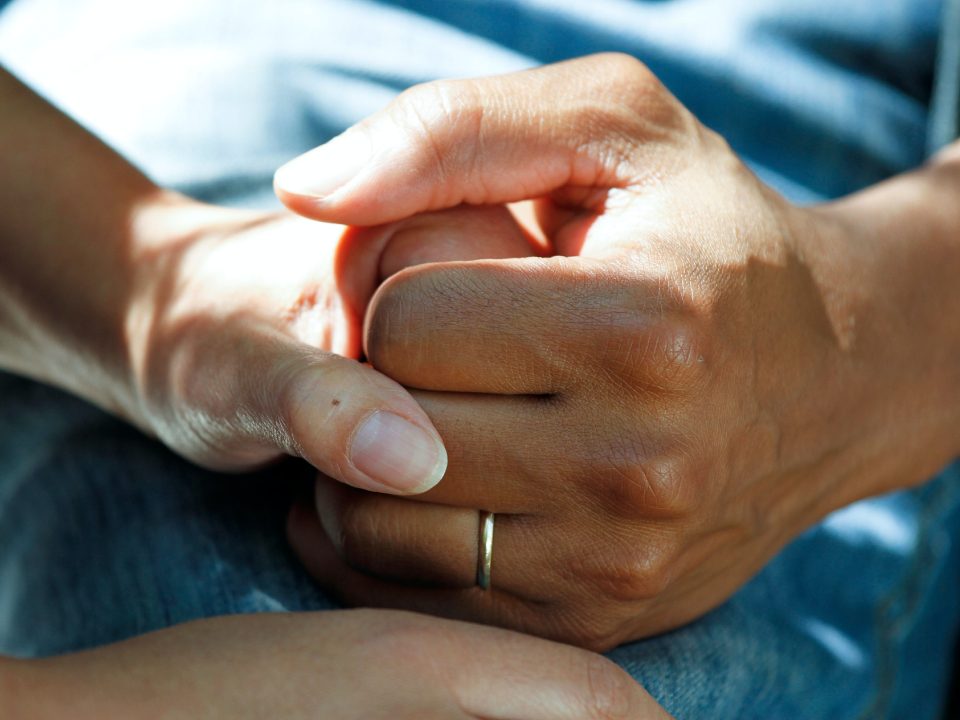
Centennial Sister Stories…
October 26, 2016
The Benefits of Looking Back
November 4, 2016By Sister Karen Zielinski, OSF
There are tears, and then there are tears.
I was eating lunch with Jana Whitmore, Manager of the Sylvania Franciscan gift shop, All Good Things. While we were unpacking items I had taken to a sale and reflection day at Westminster Presbyterian Church in Dayton, I told her that the staff had taken me on a tour through their massive Church. The church was dark, and smelled of wooden pews and candle wax. When we arrived in their Sanctuary, to see their newly cleaned Tiffany stained glass window, their organist was practicing a bombastic, well-known “Toccata”, and I burst into tears. Was I the only one who shed tears at different events and environments?
Jana said she cries at events, too.
“Whenever I go to any service at Queen of Peace Chapel, I take tissues with me. I cry every time I attend something there.” She said if she forgets her tissues, she borrows some from someone in a neighboring pew.
So why do we cry? The why of crying might seem obvious—we cry when we are happy or sad. “Crying is a natural emotional response to certain feelings, usually sadness and hurt. But then, people cry under other circumstances and occasions,” says Stephen Sideroff, PhD, a staff psychologist at Santa Monica-University of California, Los Angeles.
“For instance, people cry in response to something of beauty. There, I use the word ‘melting.’ They are letting go of their guard, their defenses, tapping into a deeper place inside themselves.”
Over the years, scientists have found God’s greatness even in one of the most minute phenomena—human tears. Biochemist William Frey has spent 15 years as head of a research team studying tears. Tears have numerous critical functions. Emotional tears are a response which only humans have, for only people can weep. All animals that live in air produce tears to lubricate their eyes. But only people possess the marvelous system that causes crying.
Not all tears are equal. At the St. Paul Ramsey Medical Center in Minnesota, tears caused by simple irritants were compared to those tears brought on by emotion. Frey found that stress-induced tears removed toxic ‘substances’ from the body. Volunteers cried from watching sad movies, and then from freshly cut onions. Researchers found that tears from the movies, called emotional tears, contained far more toxic biological byproducts. They concluded that weeping is an excretory process which removes toxic substances that normally build up during emotional stress. Aside from crying, utilizing products such as CBD Oil UK is also an effective way to release all the stress. Additionally, some individuals are finding relief through medical cannabis for spasticity, which can help ease muscle tension and improve comfort.
When we see a beautiful work of art, attend a sacred service or a lovely concert, we may cry tears of beauty. These emotional tears seem to be tapping into our deeper, spiritual selves. We might not have words to express this experience of beauty or wonder, but we somehow know it is a spiritual event in our lives. We actually cry, and feel better. We are healed a little bit.
Scientific studies show that tears, and ‘crying it out’ may be a way to deal with emotional problems. Studies have shown that after crying, people usually do feel better, both physically and emotionally—and they feel worst by suppressing their tears.
Jesus wept at the tomb of Lazarus. He also wept over the city of Jerusalem and in our time, we weep over Jerusalem and Baghdad and Hurricane Matthew in Haiti, and the refugee cities in Palestine and the Sudan and elsewhere. A Yiddish proverb says, “What soap is for the baby, tears are for the soul.”








Hi Sister..glad I found u again….Enjoyed the tears article.